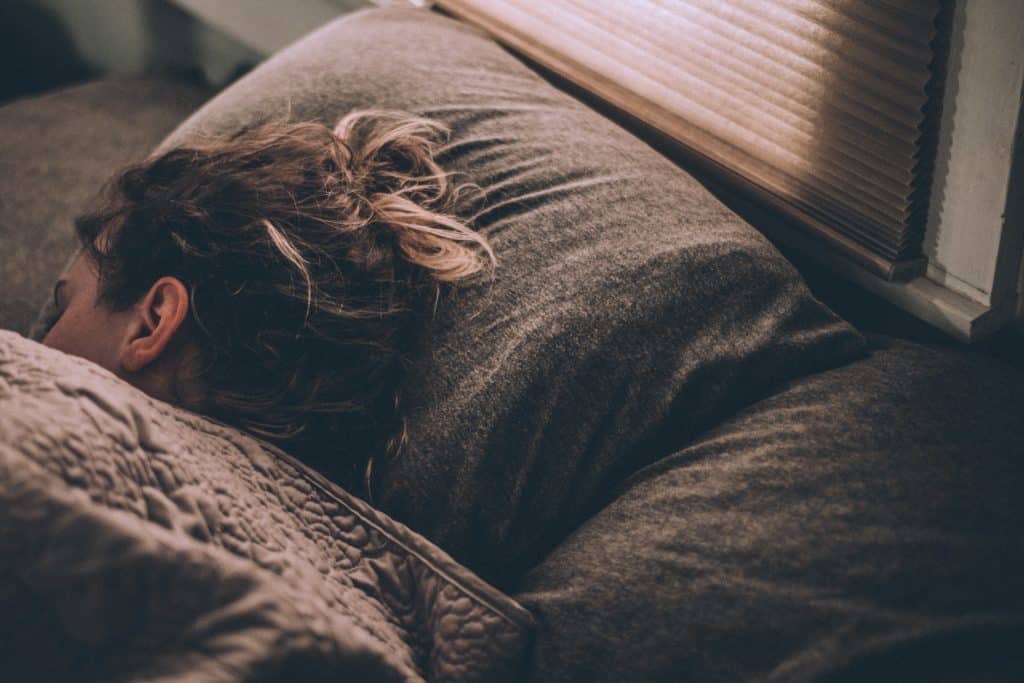Sleep is a vital part of recovery and is necessary for keeping your body and mind healthy. Unfortunately, many people struggle with sleep, especially when they’re going through addiction treatment.
This is because sleep problems and insomnia are a common withdrawal symptom of a number of substances. Not only that, but some substances have a sedative effect, meaning that your body has to adjust to sleeping without it. This can create a vicious cycle, as a lack of sleep will make you feel far worse, potentially making your recovery more difficult.
Here are 4 ways to improve sleep when going through addiction treatment and to help you to achieve a meaningful and lasting recovery.
Seek Appropriate Treatment
If you have a substance abuse disorder, then the best way to ensure that you can recover is to contact an addiction treatment center. This means that you can have the support that you need.
Trying to end an addiction without this support is admirable, but extremely difficult and potentially dangerous. Going cold turkey without any medical aid can result in severe withdrawal symptoms, including insomnia.
This is why treatment is the best answer to working through your recovery and any subsequent difficulties. You can use telehealth services to receive treatment while continuing with your life, and you can discuss your sleep difficulties.
A treatment center will assess your needs and suggest the most appropriate treatment option for your situation. For example, an intensive outpatient program allows you to stay at home while still receiving regular therapy and being carefully monitored. This includes helping you to recover your sleep cycle so you can get the rest you need.
Develop Good Sleep Habits
Some of the advice that you will receive during your treatment includes reestablishing healthy sleep habits. By developing a healthy sleep routine, your body will find it easier to drift off.
Addiction heavily interferes with your natural sleep cycle, so you might not be used to sleeping at night. Spend some time outside during the day to expose yourself to daylight, which helps your circadian rhythm recover.
You should also create a restful sleep environment. Go to bed and wake up at the same time each day, so that your body gets used to the routine. Rather than looking at digital devices before bedtime, which can interfere with your circadian rhythm, wind your body down.
Natural Approaches
There are some natural sleep aids that can help you to drift off and hopefully counteract the effects of withdrawal. A soothing hot cup of caffeine-free tea can be helpful. Some herbal teas are especially useful, such as valerian root tea that can work as a mild, natural sedative. Green tea also contains amino acids that can help you to relax and improve sleep quality.
You can also take supplements, such as melatonin. Melatonin is produced naturally by your body and regulates your sleep cycle. Supplements can boost this hormone and help you to sleep better and more regularly.
However, you should always talk to your doctor or treatment personnel before taking any supplements. Some may have side effects, especially if you are taking medications or other substances.
Medical Intervention
One trap that people can fall into during recovery is self medication. This is especially true during the early stages of recovery, when your withdrawal symptoms are most severe. Finding a quick solution can be tempting.
However, it can be easy to use something that becomes a substitute for your drug of choice. If you’re going through drug rehab or alcohol rehab, this can set your progress back. So, avoid over-the-counter sleep aids, marijuana, alcohol, or other substances that can interfere with your treatment.
If you feel that you need some extra help to sleep, then talk it through with your treatment provider. Some medications can help with your withdrawal symptoms, including insomnia. Your physician may prescribe a short-term course of medication to help you to sleep.
If your doctor does prescribe a sleep aid, then talk to them about any potential side effects and do not take more than is prescribed. It’s important that you follow the instructions exactly.
In Conclusion
Research suggests that people who suffer from sleep deprivation may be more prone to dangerous behavior. Poor sleep can also increase cravings. On the other hand, high quality sleep can increase your chances of avoiding a relapse.
A good sleep routine, as well as appropriate addiction treatment, are both vital parts of a sustainable, long-term recovery.

